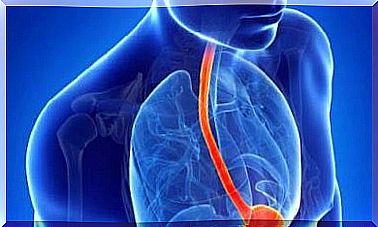Promethazine: What It Is And How It Works
Promethazine is a drug used to treat mental and emotional disorders and to reduce nausea. Its activity is based on reducing the levels of histamine in the body.
Promethazine does not have neuroleptic effects, although it is very useful in the symptomatic treatment of allergies, reducing the discomfort of rhinitis and allergic conjunctivitis.
Histamine and allergy
Histamine is a brain neurotransmitter (chemicals released during neuronal communication) and an endogenous amine. It is stored in granules that we can find inside some cells closely related to allergic reactions and in platelets.
Histamine is primarily involved in inflammatory processes, but it also has receptors in the stomach lining and in the brain. This explains the effect of antihistamines such as promethazine on the central nervous system and in preventing nausea and vomiting.
Promethazine is to be used primarily as a treatment for allergies. Allergies occur because our defenses act against allergens in an exaggerated way, such as pollen or certain components of the fruit.
When the allergen enters the body, the immune system recognizes it as foreign and attacks it, giving rise to specialized cells in the elimination of said substance. Consequently, when the allergen is back in the body, these cells are activated, developing the allergy picture.
Among the mechanisms involved in an allergic reaction, the massive release of histamine from some cells is very important. Therefore, reducing histamine levels is a way to reduce the discomfort caused by this pathology.
Mechanism of action of promethazine

Promethazine is an antihistamine, that is, it decreases the action of histamine. It does not prevent the allergic reaction, it only reduces its symptoms, that is why it is said to be a symptomatic treatment.
It is administered orally and rectally. To treat allergic reactions, one to four oral doses a day are usually prescribed. When used in the treatment of nausea due to travel, it should be taken approximately one hour before leaving.
The main problem with antihistamines is that due to their effect on the nervous system, they are hypnotic and cause a lot of drowsiness.
Indications of promethazine
Allergic rhinitis

Allergic rhinitis is an inflammation of the nasal mucosa caused by exposure to an allergen, that is, a substance that is harmless to the body. The release of histamine in this context will intervene in all the symptoms that characterize this pathology:
- Nasal itching: it is the most characteristic symptom of allergic rhinitis. It is produced by irritation of small nerves in the area.
- Sneezing: produced by a reflex mechanism triggered by the released substances.
- Mucous discharge.
- Obstruction of the airway.
Therefore, antihistamines such as promethazine are the first line of symptomatic treatment for allergic rhinitis.
Allergic conjunctivitis
Conjunctivitis is an inflammation of the mucous layer that lines the eyeball, called the conjunctiva. Its symptoms are as follows:
- Mucous lacrimation, with a whitish, liquid and very abundant discharge.
- P ocular icor.
- Redness of the conjunctiva, which is why allergy sufferers have red eyes.
- The eyelids are swollen and sore.
- There is usually associated rhinitis.
As in rhinitis, promethazine and other antihistamines are the first line of treatment in allergic conjunctivitis, reducing the discomfort caused by the symptoms.
Other uses

As we have said, histamine receptors are not only on inflammatory cells. They also exist in other tissues such as the gastric mucosa and the central nervous system.
This means that promethazine can be used in other settings such as the management of postoperative nausea and vomiting, travel sickness, or as a hypnotic.
Side effects
Like any drug, promethazine is not without adverse reactions. Some of them are:
- Sedation.
- Drowsiness.
- Seasickness.
- Ocular accommodation disorders.
- Mydriasis
- Constipation.
- Dry mouth.
- Urinary retention.
In conclusion, promethazine is a drug that has many different indications and that can cause adverse effects, sometimes at the central nervous system level. Therefore, the advice of the specialist should be followed to avoid problems.









